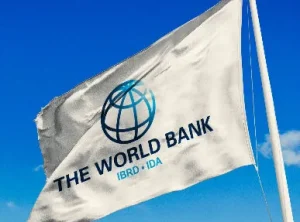
Accra, Ghana — The World Bank has denied the suspension of funding for two key projects under its financed portfolio in Ghana.
The Bank said in a short press release issued in Accra and titled: ‘No projects in the World Bank financed portfolio in Ghana are currently suspended’.
This follows recent reports indicating that the two key projects-Ghana Digital, and Tree Crops Diversification were likely to be halted due to the alleged funding suspension.
World Bank support
However, the World Bank which is a key development partner of Ghana, reaffirmed to the Ghanaian government and its agencies, development partners, and beneficiaries that all projects under the World Bank’s portfolio in the country remain active and operational.
The Bank is also funding projects such as infrastructure, education, healthcare, agriculture, energy, among others for the socio-economic development of Ghana.
According to officials of the Bank, a disruption in these projects would affect the livelihoods of the people, job creation, service delivery, and Ghana’s widen economic growth and development agenda.
Ghana which is part of the World Bank’s Western and Central Africa (AFW) is a vast region has been a long-standing partner.
In fiscal 2024, the World Bank approved $11 billion for 66 operations in the region, comprising $1.7 billion in IBRD commitments and $9.3 billion in IDA commitments. About half of these commitments went to countries affected by fragility, conflict, and violence.
The World Bank is a dedicated partner for Western and Central African countries, helping them deliver strong development outcomes for their people by focusing on priorities detailed in the World Bank Africa strategy. The strategy also prioritizes regional integration and research to maximize development impact for clients.
Economic outlook
In AFW, economic activity is projected to increase from 3.3% in 2023 to 3.9% in 2024 and further accelerate to 4.2% in 2025–26. Excluding Nigeria, AFW is projected to grow at a faster pace—that is, 4.8% in 2024 and 5.1% in 2025–26, according to the Bank.
Within the subregion, the West African Economic and Monetary Union (WAEMU) is projected to grow at 5.7% in 2024 and 6.2% in 2025–26 due to the solid performances of Benin, Côte d’Ivoire, Niger, and Senegal.
Economic growth in Nigeria is projected at 3.3% in 2024 and 3.6% in 2025–26 as macroeconomic and fiscal reforms gradually start yielding results. The consolidation of macroeconomic reforms should support higher growth in the country in 2025.
On the back of strong private consumption and capital deepening, growth in Côte d’Ivoire is expected to be 6.5% in 2024 and remain firm at 6.6% in 2026. Infrastructure investment—especially in the digital and transport sectors—along with the exploitation of recent oil discoveries and prudent macroeconomic policies should improve investor confidence and enhance growth prospects.


